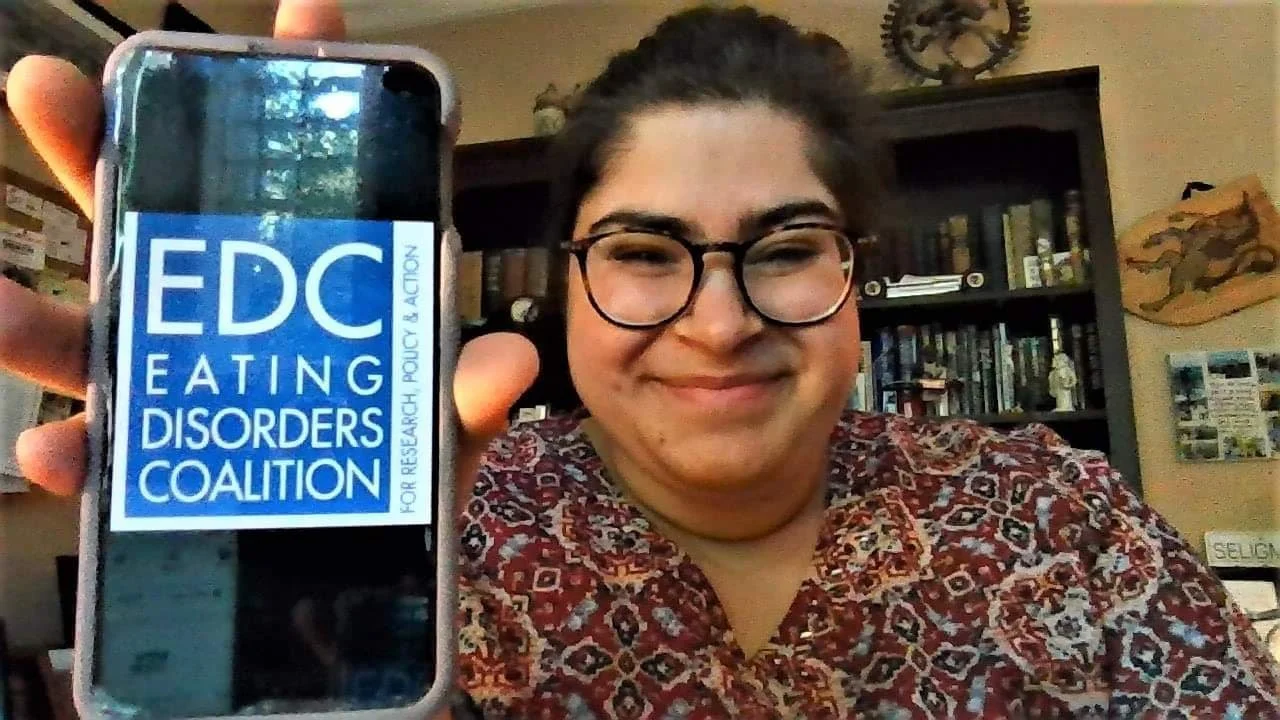The Power of Advocacy & Activism in the Eating Disorder Field: Mental Health Action Day — May 19th, 2022
Taking action in the eating disorder field isn’t just about raising awareness. In this piece, Project HEAL MarCom Manager Serena Nangia shares her two cents on advocating with the Eating Disorders Coalition and what it means to make a difference as one individual in the midst of systemic issues that feel insurmountable.
Dear Diet Culture: No More Being Calladita
As a Mexican immigrant who works to help Latinx heal their relationships with food through an intersectional lens, Dr. Jimenez reflects on how dominant power structures conditioned her to be calladita, or silent. She now unapologetically takes up space to discuss the lack of BIPOC voices in anti-diet movements and how diet culture disconnects a person from their cultural and ancestral roots.
“Asians Don’t Quit”
Amidst the violence and xenophobia that afflict diverse Asian American communities, artist and activist Vivian Auren unpacks how white supremacy also perniciously distorts Asian American conceptions of “perfection” and attitudes towards hobbies and interests—all of which contributed to their struggles with an eating disorder. They have now embraced authenticity, making peace with quitting and exercising autonomy over their trans, queer nonbinary body.
Orthorexia & Chinese American Identity: How White Supremacy & Colonialism Warped by Constructs of Health
In honor of Lunar New Year, our very own Blog Manager Alexandra Xu discusses her struggles with orthorexia as a young Chinese American. In this post, she describes her reckoning with the vilification of Chinese cuisine as "dirty" and her journey in unpacking notions of "health" rooted in white supremacy and colonialism—all of which fueled her passion for intersectional body liberation and health justice advocacy.
Dismantling Whiteness in Recovery Spaces
The eating disorder recovery space has long erased Black & Brown voices, and our healthcare system perpetuates the erroneous belief that eating disorders only affect white populations. 17 year-old recovery advocate Julissa Minaya discusses her experiences recovering from an eating disorder as a woman of color and outlines ways in which we can individually (and collectively) work to dismantle whiteness in recovery spaces.
TEARS SHED IN THE DOCTOR’S OFFICE: WEIGHT STIGMA IN MEDICINE
Under a medical framework that glorifies weight as a barometer of health, weight stigma is deeply pervasive. Doctors’ anti-fat behaviors and remarks (and blanket prescriptions to “just lose weight”) cause so much trauma and harm. High school junior Siya Angras relays how from the age of 10, she was told her body was not good enough and that she must be “unhealthy”. This fueled her struggles with an eating disorder, especially as she navigated diagnoses of high cholesterol and PCOS and faced both South Asian and U.S. beauty standards.
EATING DISORDERS IN INDIAN AMERICAN CULTURE
Eating disorders cannot be entirely ascribed to one’s cultural upbringing; folks from all backgrounds are deeply affected. Yet one’s relative degree of access to diagnosis and equitable care is often linked to their identity. Alison D’Mello explores the nuances of how Indian American culture shaped her experience with an eating disorder and offers powerful advice to those systemically excluded from the eating disorder space.
CAUGHT BETWEEN CULTURES: DISORDERED EATING IN ASIAN AMERICA
For the children of immigrants, the coinciding of two seemingly disparate cultures with equally unattainable beauty and “wellness” standards can shape a multi-faceted struggle with disordered eating and body image. 17-year-old journalist Serena Li describes her journey to find HEALing from diet culture and navigate her identity as a young Chinese American woman.
BODY IMAGE AND SOCIAL JUSTICE
Many people are growing increasingly cognizant of how the “thin ideal” permeates every facet of society. HEALers Circle member Allyson Ford reminds us that intersectional systems of oppression inject many other “ideals” in our individual and collective psyches as well; thus, our bodies are inherently political. While body positivity is not truly possible without liberation for all bodies, we can work on body neutrality, and as an eating disorder therapist and survivor, Allyson provides invaluable wisdom regarding this.
ASIAN AMERICAN IN A WHITE-DOMINANT TREATMENT CENTER
Neutrality is often upheld as a key tenet in clinical spaces. Yet as Rachel Wang illustrates in this piece, the pernicious dogma to “stay out of politics” causes tremendous harm to folks who fall outside the dominant eating disorder narrative. After all, one’s identity and culture are inextricable from their relationship with food. Rachel thus underscores the importance of anti-racism and cultural humility for providers and reminds us of our collective duty to dismantle the treatment barriers faced by Asian Americans.
THE REALITIES OF TREATMENT AS A BIPOC
What does it mean to be a BIPOC with an eating disorder? How does a BIPOC navigate the tricky waters of receiving an eating disorder diagnosis and subsequent treatment? In this brave story, we are reminded that all individuals have the capacity to develop an eating disorder; we are held accountable to the fact that we need to do better to support BIPOC with eating disorders.
I CHOOSE RECOVERY, I CHOOSE TO LIVE COURAGEOUSLY
Project HEAL Ambassador Ayanna opens up about her recovery journey. Ayanna is a recovery warrior and working hard every day to maintain her recovery. Her bravery in writing about why she chooses recovery every day can move us all towards a space of healing.
SUBMIT A GUEST BLOG
Project HEAL would love to share any and all stories that are aligned with our mission, vision and/or values. If you have struggled with an eating disorder, have experienced and/or overcome barriers to accessing treatment, or are an ED provider and/or recovery advocate — we want to hear from you!
We are especially interested in sharing stories from voices often excluded from and/or underrepresented in the eating disorder recovery community. Submitting a blog proposal does not necessarily guarantee publishing — we reserve the right to respond with proposed edits (for your approval) or pass on publishing your proposed content.
Thank you in advance for wanting to share your story with us and our community!













